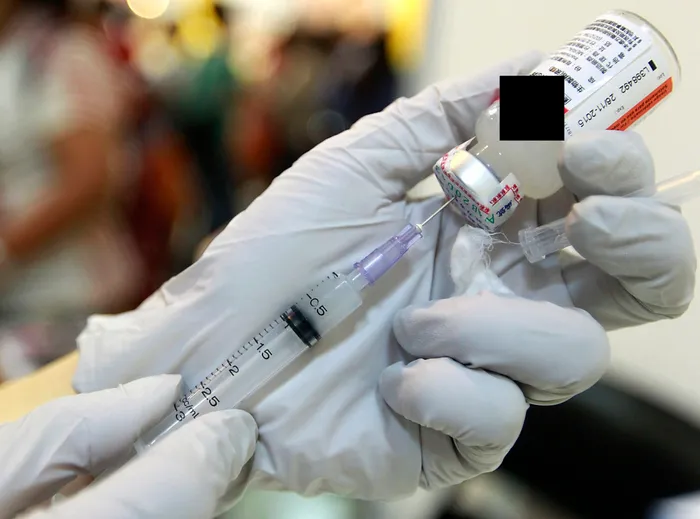South Africa's vaccination struggles: Key insights from African Vaccination Week 2025

African Vaccination Week 2025 highlighted the plight South Africa was in to reach its target in vaccination programmes and fighting off misconceptions around vaccines. African Vaccination Week is simultaneously celebrated with other World Health Organization regions under the banner of World Immunization Week (WIW). It aims to strengthen advocacy for better access to vaccination.
Image: FILE
African Vaccination Week 2025 highlighted the plight South Africa was in to reach its target in vaccination programmes and fighting off misconceptions around vaccines.
African Vaccination Week is simultaneously celebrated with other World Health Organisation (WHO) regions under the banner of World Immunisation Week (WIW).
It aims to strengthen advocacy for better access to vaccination. South Africa was in the top 20 countries in 2023 based on the number of zero-dose children.
The Department of Health (DOH) spokesperson Foster Mohale urged parents and caregivers to ensure that their children are up-to-date with their vaccinations to protect people of all ages against vaccine-preventable diseases such as measles, mumps, rubella, polio, diphtheria, etc.
“Globally in 2023, there were 14.5 million children missing out on any vaccination – so-called zero-dose children. It is for this reason that the department is working with provinces and other stakeholders to address immunisation gaps and improve vaccination coverage in the country,” Mohale said.
The DOH will use the 2025 campaign to intensify vaccination and surveillance activities to close immunity gaps in poorly-performing districts which have been identified as having high numbers of under-vaccinated and unvaccinated children (also known as zero-dose children) as part of efforts to curb vaccine-preventable disease outbreaks.
Mohale said although 80% of children in South Africa have received all their vaccination by the age of one year, this means that one in five children has missed one or more doses and is therefore not fully protected from vaccine-preventable diseases. Globally countries are expected to reduce their zero-dose children numbers by 50 % in 2030.
Dr Smangele Mthethwa, WHO South Africa NPO and Vaccine-Preventable Diseases Surveillance, said the backsliding in vaccination in Africa came after a decade-long stagnation of vaccination coverage.
Mthethwa said 22 out of 47 countries had achieved the global target of 90% coverage for the first dose of Diphtheria,Tetanus and Pertussis (DTP 1), which is an improvement from the previously reported 13 countries in 2022.
Elizabeth Maseti, the National Expanded Programme on Immunisation (#EPI) and VPD’s said there was a decline in immunisation coverage day by day with only provinces reaching their targets.
Maseti said people were hesitant to receive vaccines. Maseti noted that there is a growing hesitancy among people to receive vaccines.
Dr Lesley Bamford ,Specialist at National Department of Health, said they require strategies and opportunities for improving vaccination coverage.
“A life course approach to vaccination, expanding or developing new delivery platforms will provide opportunities for immunisation services to be integrated with other health programmes. This has the potential to provide a more people centered approach to health across each stage. We need to strengthen school- based school health services and have community dialogues,” she said.
Dr Sufang Guo, United Nations Children's Fund (UNICEF) Chief of Health and Nutrition said South Africa still has a long way to go to achieve its target. Sha called for more investments in vaccines and social mobilisation campaigns.
Dr Kevin Makadzange, from the World Health Organisation, said we must confront the unsettling reality of the rise in zero-dose children who have never received even a single vaccine. Makadzange said even nations with advanced health systems experienced problems.
“The rise of misinformation about vaccines is a concern. We must ensure we reach even the most vulnerable from the rural child to the migrant mother. Let us not lose momentum,” he said.
zainul.dawood@inl.co.za
Related Topics: